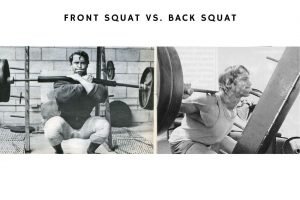Many Make These Gym Workout Mistakes That Hinders Their Results Even After Doing Everything Right
You joined the gym and started hitting it regularly, and even your diet is on point. But, you’re frustrated because you’re not going anywhere. You aren’t seeing any results even after spending endless hours on the treadmill and in the weight room.
However, you aren’t the only one who’s having such complaints. Many are stuck into it, and there’s a high chance that you might be making certain gym workout mistakes, too, that you might not be aware of. Here, below we’ve listed out certain commonly seen gym workout mistakes that you can prevent and get back to track and see your progress.

You Might Be Making Certain Gym Workout Mistakes That You Might Not Be Aware of
12 Gym Workout Mistakes That You Should Avoid to Get Your Workout Back to Track
Below are some of the commonly seen gym workout mistakes that many makes and aren’t aware of, due to which they don’t see the results as much they put in the hard work and time.
1. Changing Workout Too Often
If you’re hitting the gym for some time, you might have come across a term called “muscle confusion.” It’s an idea that you religiously change your workout from week to week by adding some variations in your current workout routine. For instance, change your rest periods, rep ranges, and tempos to shock your muscle and give some new growth.
It might make sense on the surface, but if you’re changing your workout too often, such as every week or two weeks, then it may backfire. Instead of new muscle growth, you will experience your progress is halting.
Avoid Changing Workout
Suppose you’re new to the gym and not aware of your training philosophy and haven’t given much time finding what works or doesn’t work. It’s best that you at least stick for a month or two and see whether you’re reaping the results or not. And, when you hit a plateau, you can think about making a certain variation.
Persistency is needed to learn what your body requires. It’s suggestive that you at least take around the eight-week mark to make an objective decision.
To learn what your body demands, find a progressive workout routine, or make it written for you and stick with it at least for a year and make the most of it. So, you’ll get a better understanding of the ins and outs of regression and progression.
2. Deloading
The usual volume or intensity of the workout routine is three weeks, followed by de-load on fourth. For instance, the first week is high, and the second week is for moderate volume, the third week is to over-reach your capacity, and on the fourth week, you intentionally lower your workout volume, which is known as a de-load week. Sometimes, people go overboard with it and do it even if they don’t require any deload or don’t’ deload at all, and both can come between your workout routine and progress.
Avoid Deloading Too Often or Not Doing at All
If you aren’t competing, then there’s no need for full-blown deloading. You can deload for one week at the end of every month, where you lower your workout volume intentionally. And, if you aren’t doing it at all, then it’s recommended that you try it once. So, your body can get a needed rest from those extra loads without giving a break into your workout routine.
3. Overindulging in Caffeine
Caffeine works well as a pre-workout supplement. It does give that extra kick to keep you busy with your lifts. The bad part of caffeine is that your body quickly adapts to it, and you may start taking more. Though caffeine has shown to block muscle pain during a workout, it even helps you stay active if you’re feeling fatigued or tired, which sounds helpful. But overindulging in it can backfire. You may get tickling in your eyelid or may not be able to sleep properly.
Avoid Overindulgence of Caffeine
Caffeine is one of the best supplements to keep you energetic, but it’s also true that it doesn’t work well when you take it around your sleep hours. Caffeine is like any other stimulant supplement, which gets less effective over time, and in that regard, people start overdosing, which leads to side effects.
We recommend not exceeding the 400 mg dose and prefer taking at least 8 to 10 hours before your sleep time. Because it can interfere with your sleep pattern, which can lead to insomnia, some other side effects that are seen are adrenal fatigue, energy crash, and increased blood pressure. Sometimes you even become addicted to it.
4. Not Getting Adequate Recovery
Hitting the gym every day and going hard is not new, everyone loves doing it, and I’m not an exception. Another reality is that muscles breaks-down in the gym and get repaired and made outside the gym.
Many people repeat the same mistake. They try going hard every day, thinking more weight means more muscles, but another thing that needs to be considered is that the body requires adequate recovery from the stress it gets through heavy lifting and workouts.
Get Proper Recovery
Once the workout is complete body seeks recovery, and it’s done through three different things, eating the right food, supplementation, and proper sleep. All three combined give the body proper recovery, and from thereon, growth takes place. As much focus everyone gives on their workout, equal focus should also be given on food, supplementation, and sleep.
5. Love Your Carbs
Many stress out about reducing carb from their diet without any necessity, or else it’s reduced beyond the limit, and both can backfire sooner or later if it’s done for a prolonged period of time. Yes, low carb diets do work, but having a healthy balance is the key to achieve long-term results. Also, carbs taken in pre-workout meals help you push harder in the gym due to energy.
Eat Right Carbohydrates
It’s suggested to eat your carbohydrates optimally without overindulging in them. Also, go with the right carbohydrates, such as oatmeal, that gives more energy instead of those fast food that doesn’t do any good.
6. No Proper Warm-Ups
Warm-up exercise is an essential part of workouts, but it’s usually taken for granted, and no one bothers to give an adequate amount of time, as much it’s needed. And, not warming your body before your working sets can lead to soreness to injuries, as your body isn’t prepared for it.
In winters or you belong to the place where snowfall occurs, it becomes more important that you perform warm-up exercises before beginning your workouts, or else you’ll have high chances of injury.
Do Proper Warm-Up Exercises
It’s recommended to avoid this mistake, and you should perform warm-up exercises before starting your actual workouts. Warm-up exercises help in numerous ways. It helps to warm your body, let you focus on your joints’ flexibility, and most importantly, helps enhance your pumps during a workout.
7. You Don’t Do Stretching After Your Workouts
As many warm-up exercises are important that much stretching is important for your body to grow. Once your workout is completed, you should stretch without fail. As failing to stretch can lead to tightness in your body that can cause muscular pain.
Few Minutes of Stretching After Workout
Stretching after finishing your workout is highly recommended. It even gives benefits of increasing flexibility of different muscle groups of your body, improving overall blood circulation, improving range of motion, and eliminating lactic acid responsible for your sore and exhausted body, and much more.
8. Ego Lifting
Every experienced weight lifter knows about it and struggles with it. If you’re hitting the gym regularly, you might think about lifting heavy to test whether you can lift or not, or else to impress your gym buddies or that gym bunny you’ve got a crush on.
I’m not an exceptional case. I’ve had cervical disc herniation not once but twice. Poor diet, accompanied with more than I can lift to satisfy my ego, got me nothing but injury. I am not bragging nor feeling proud about it, but yes, letting you know how foolish I was.
Avoid Lifting More Than You’re Capable of
There’s a big misconception that lifting heavy weight is better. Though, the truth is how heavier you go depends upon you. How much you’re capable of lifting, based on that, you can decide how heavier you should go. If you watch any pro lifter lifting heavy 300 pounds weights, then it’s not a wise decision to try that if you’re unable to lift more than 200 pounds.
You should be able to make the judgment and lift as much you can without losing your focus and form. You should be the one who should be controlling weight while lifting weights and not the opposite.
9. Setting Huge Goals
When you start any workout program, you make big resolutions such as losing 30 pounds of weight or getting six-pack abs within 6 to 8 weeks. That may seem good initially, but after a while, you’ll lose interest and ultimately give up on it.
Set Realistic Goals
Instead of setting big goals, go for small goals, and make improvement compared to your present situation. Set small goals and be consistent with them. Eventually, you’ll reach your goal, which you wanted.
10. Abusing Cheat Days
Keeping cheat day does have a purpose. It gives you rest for a day from your restrictive diet. It gives pleasure to your taste buds that have been bored with your regular diet. It also helps you retain your energy that helps to make your next workout more intense.
But many times, people start abusing cheat days, and it turns into overeating that can backfire. For instance, you may start eating your favorite food without tracking how much you suppose to eat, and instead, it makes you gain weight.
Track Your Cheat Days
Cheat days don’t mean that you can eat whenever or whatever you want. Though you’re allowed to eat your favorite meal, it shouldn’t go overboard and should use cheat days in a justified manner instead of binging into it.
11. Not Tracking Workout
Many come to the gym and wonder what workout they are supposed to do. Many come with friends or colleagues, and instead of focusing on the workout, they’re more interested in talking. Though nothing wrong with meeting your mates in the gym. But it shouldn’t go overboard that you can’t focus on your workout. Plus, you should be aware of how many sets you suppose to do, what weight you’ve to lift, how many reps you suppose to do with which workout, etc.
Track Your Workout
Start tracking your workout. If not maintaining a journal, at least be sure that you’ve decided what workout you’re going to do, how many sets and reps you’ll do per exercise, what weights you’ll lift –many times, people go by how they feel. If possible, search for some workout program online and stick to it, instead of doing some random workout.
12. Inconsistent Workout Schedule
It often happens when people make New Year resolutions, join the gym at the beginning of the year, and quit after a few months. Some go to the gym more to socialize instead of properly working out. If you’re not consistent with what you’re doing, it’s pretty sure you won’t get the result that you’re looking for.
Workout Consistency Is the Key
If you’re consistent with your workout and diet, it doesn’t matter whether you’re doing little wrong here and there. You’ll get results. Being consistent is more important than ego lifting or being a seasonal gym goer. Instead, focus on making small goals and try to achieve them. Being consistent with your workout, showing up in the gym will be more productive instead of following short term, highly aggressive workout routine or diet.
Wrapping Up
These are some of the common mistakes made by many. It doesn’t mean that everyone does, but make sure you aren’t one of them, and if you’re making, you know better what you are supposed to do instead of repeating it. Lastly, let us know if you think what we’ve left out in the comment section below!






